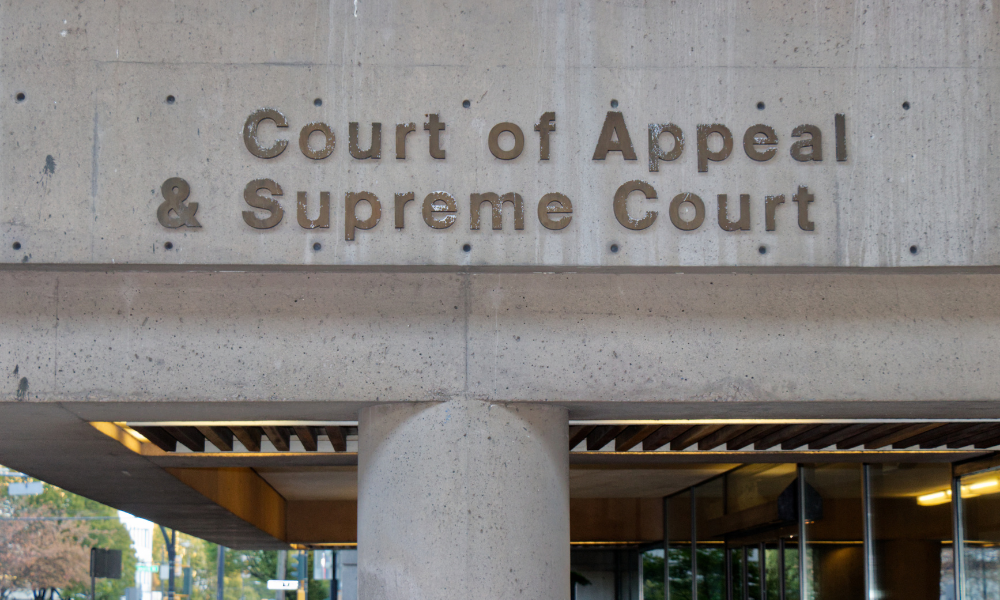
Ruling stemming from divorce case allows woman to amend pleading relating to two houses

The British Columbia Court of Appeal has given a woman an opportunity to amend her counterclaim against her former husband’s parents and sister regarding her alleged interest in two houses in Surrey, BC, which she claimed were family property.
In Bhatti v. Grewal, 2025 BCCA 138, the parties started living together in 2015, married in Abbotsford in August 2019, and separated in August 2021. The respondent ex-husband filed a family claim seeking a divorce in July 2022 and obtained the divorce order in February 2024.
In September 2022, the appellant ex-wife responded to the family claim and concurrently filed a counterclaim against her former spouse’s parents and sister, who were the respondents by counterclaim.
The ex-wife requested an order for spousal support and an order concerning her claimed interest in two properties on 192 Street and 87A Avenue. She listed the houses in schedule 4 and the orders she wanted in connection with these properties in schedule 5.
The respondents by counterclaim applied for an order under r. 11-2(1)(a) of the Supreme Court Family Rules, BC Reg 169/2009 (SCFR) to dismiss the ex-wife’s claims against them. They argued that the counterclaim disclosed no reasonable cause of action or material facts supporting the claims.
In 2023, a Supreme Court of British Columbia judge ordered the ex-wife to amend her counterclaim to state a cause of action and material facts supporting the claims. The judge decided not to strike the claims without first giving the ex-wife a chance to clarify their basis. The judge noted that the SCFR did not require material facts in schedule 5 relating to other orders.
By December that year, the ex-wife filed her amended counterclaim with changes to paragraphs 8 and 9 of schedule 5. Nine days later, the respondents by counterclaim applied to strike the amended counterclaim.
The same judge of the BC Supreme Court struck the amended counterclaim. She held that the ex-wife’s amendments in paragraphs 8 and 9 of schedule 5 failed to comply with her earlier order or to disclose a proper cause of action and material facts. The ex-wife challenged this decision.
The Court of Appeal for British Columbia allowed the appeal. The appeal court replaced the judge’s order striking the ex-wife’s claims against the respondents by counterclaim with an order requiring the ex-wife to file a further amended counterclaim.
The appeal court listed specific facts the ex-wife should include in paragraphs 8 and 9 relating to the two houses and certain corporations. The appeal court noted that the respondents by counterclaim could file an application in the BC Supreme Court if the ex-wife’s further amendments were still deficient.
The appeal court ruled that the ex-wife’s original and amended counterclaims both complied with the SCFR. The appeal court held that the amended pleading provided some material facts and causes of action.
In paragraph 9, the ex-wife alleged that she had lived and contributed physically and financially to both houses, which were supposedly family property, and that her ex-husband was a registered owner of one house.
The appeal court noted that the ex-wife’s allegations in paragraph 9 suggested a resulting trust and a constructive trust as bases for her claims against the respondents by counterclaim, while paragraph 11 added unjust enrichment as a basis.
However, the appeal court held that the judge correctly concluded in the initial hearing that the ex-wife should amend the counterclaim by providing particulars. The appeal court also accepted that the amended pleading did not comply with the judge’s first order since it failed to state material facts or connect them to the causes of action.
The appeal court noted that the amended counterclaim was the first non-compliant document and was equivalent to a first pleading in a civil case. For this type of pleading, the party should have an opportunity to amend deficiencies in compliance with the rules that the party can repair.
“That, in my view, is particularly important in a family law case like this where property claims can give rise to relatively complicated trust issues involving relatives, and a serious injustice can result if those issues cannot be pursued,” wrote Justice J. Christopher Grauer for the appeal court.